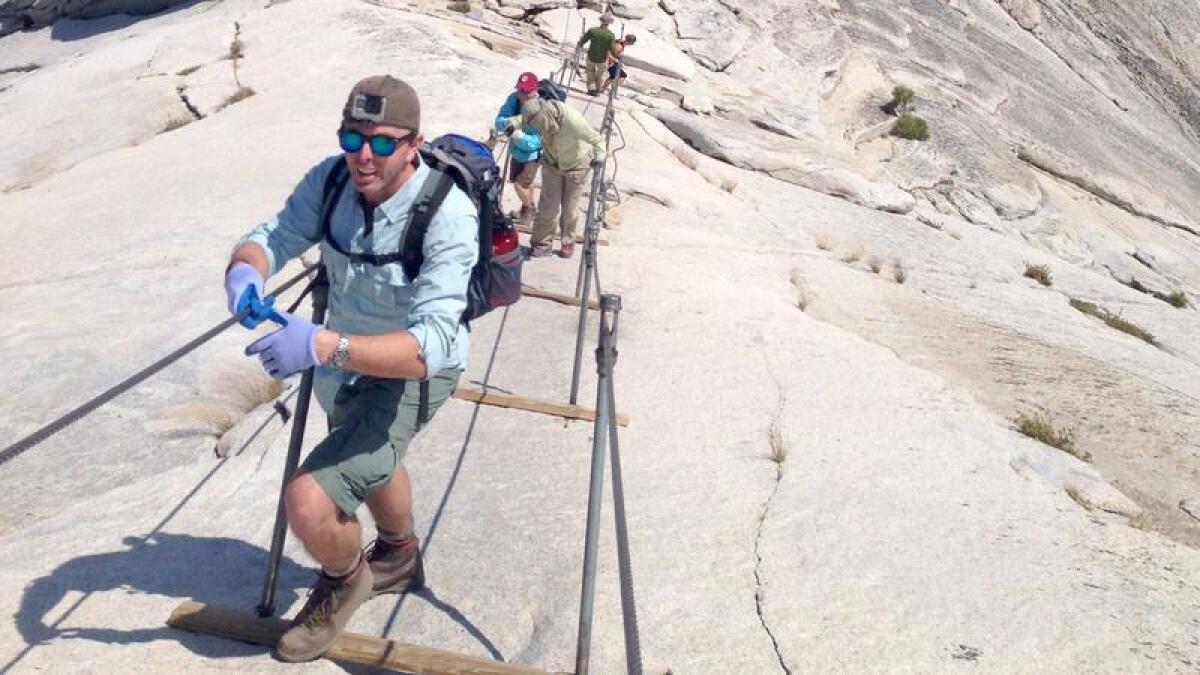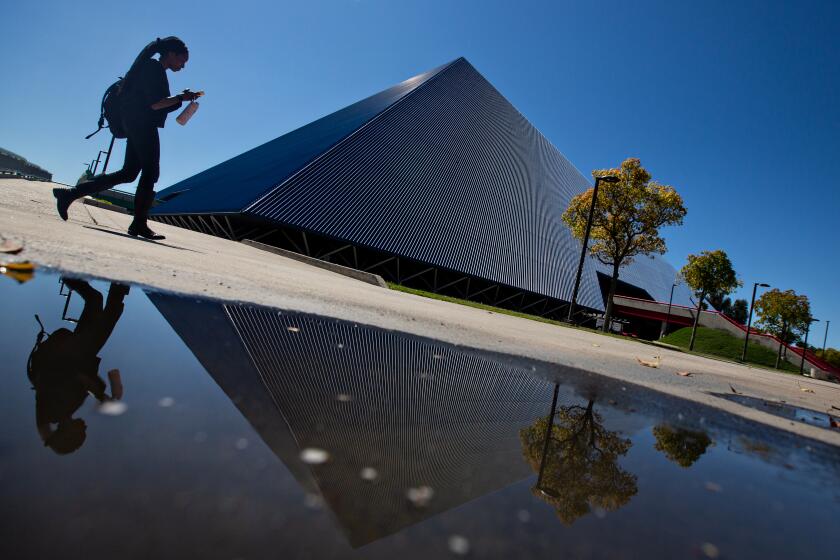Letters to the Editor: Want to make Half Dome safer? Remove the climbing cables for good

- Share via
To the editor: My suggestion for making Half Dome safer is to take the cables down. Not just part of the year, as is done now, but all year. (“After a young woman falls to her death in Yosemite, Half Dome’s risks are on everyone’s mind,” Aug. 8)
Pounding more wooden slats into the rock just makes the situation worse and the rock more unsightly. It also would give climbers a false sense of security.
Half Dome is dangerous. And that’s as it should be. National parks aren’t Disneyland; they are part of nature. Nature includes danger. Visitors can’t expect to be perfectly safe, especially when climbing an almost vertical rock face.
It’s tragic that a young woman fell to her death descending Half Dome and that her father saw her die. My heart goes out to him. But we shouldn’t commemorate her death by trying to subdue Half Dome and national parks in general. Wild places, even semi-wild places, are good for the soul.
To make Half Dome safer, take down the cables.
Connie Stewart, Santa Monica
..
To the editor: Your article seems to indicate that Yosemite National Park is responsible for making the climb to Half Dome’s summit safer.
In my opinion, adding additional wooden slats to the route would not remove the significant inherent risk of the climb, especially when the steep granite gets wet.
Having climbed the Half Dome cables twice, I join thousands of other successful climbers in completing the outing safely. All experienced outdoor enthusiasts know there are significant inherent risks to the climb, and they proceed with extreme caution when the weather is threatening.
I can understand why Yosemite officials did not respond to your request for comments on revising the cables. The only effective solution is to permanently remove them altogether, as the park does for much of the year. If your article generates a significant response, that unfortunately could be the outcome.
I say all of this with extreme sympathy extended to Grace Rohloff’s father and her entire family. What a tragic loss.
Robert James Riewerts, Los Angeles
..
To the editor: At age 27 in 1978, I was an experienced climber and wilderness guide. I wore Vibram-soled climbing boots, no harness and no gloves when I easily ascended the Half Dome cables.
I see no problem with the cables today. Climbing the cables is in no way dangerous. The danger lies with inexperienced people attempting a climb that is far beyond their ability.
Two inviolable climbing rules when ascending any peak are be prepared and know when to turn back. The problem with the cables is that people break these rules.
People who break these rules represent a danger to themselves and other climbers. People who fail to turn around when they are unprepared, scared, exhausted and obviously stretched beyond their abilities are the true danger on Half Dome.
Let the cables be. Screen permit applicants more carefully, as the danger lies with some of them, not the cables.
Bill Smart, Santa Barbara
..
To the editor: Anyone’s death on Half Dome is a tragedy.
Hiking up the last quarter-mile of the quartz monzonite batholith is dangerous. Anyone considering it is advised that it is a long, difficult hike that ends with a challenging and, yes, somewhat dangerous quarter-mile final ascent.
Adding more footholds would not make it particularly safer. Leave Half Dome as it is.
GP Williams, Pasadena






